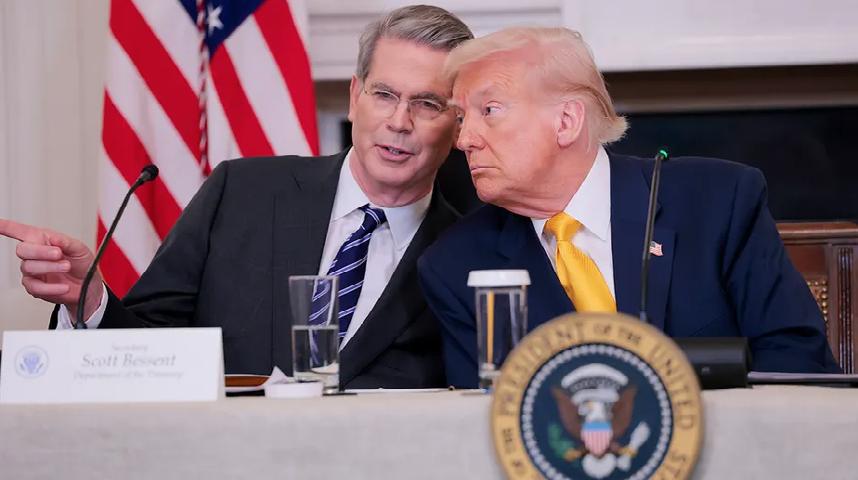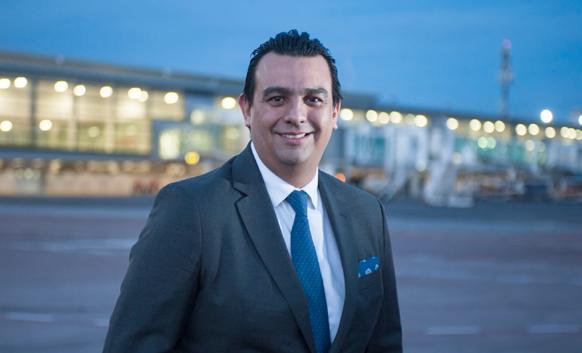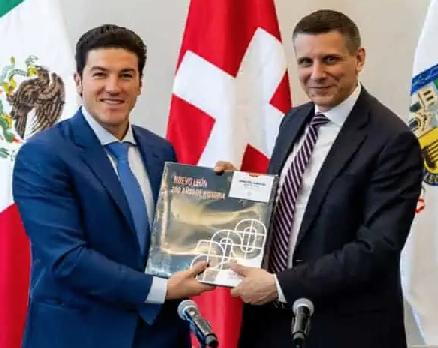GENERAL SITUATION IN MEXICO

Weekly Review I March 19, 2025






Weekly Review I March 19, 2025








Background:
• President Donald Trump acknowledged that his administration’s tariff policies might slow down economic growth in the short term. In a recent interview, he referred to the U.S. economy as being in a “transition period” due to these measures and did not rule out the possibility of a recession in the near future.
• Treasury Secretary Scott Bessent stated that there are “no guarantees” the U.S. will avoid a recession. In an interview with NBC, he emphasized that while the economy remains fundamentally strong, “adjustments” may occur as the country transitions toward a lower government spending approach.
• Trump and Bessent’s statements have fueled volatility in financial markets.
• The Nasdaq dropped 4%, affecting major tech companies such as Tesla, Alphabet, Nvidia, Apple, and Meta.
• The Dow Jones and S&P 500 also recorded significant declines in the past month due to economic uncertainty.
• The OECD has downgraded global growth forecasts for 2025 and 2026, citing U.S. protectionist policies and trade tensions. Countries like Brazil, Canada, and the U.S. could experience lower business investment and consumer confidence, further slowing growth.
• Economists from JPMorgan and Moody’s have increased the likelihood of a U.S. recession within the next year, pointing to tariff policies and economic uncertainty as contributing factors.
• The Trump administration has attempted to downplay recession concerns.
• Treasury Secretary Bessent described recent market declines as “a bit of volatility”, reaffirming that the U.S. economy remains in a strong position despite short-term turbulence.
• The Federal Reserve is assessing whether to adjust interest rates to support economic stability.
• Policymakers remain divided on whether inflation control or recession prevention should be the priority in the coming months.
• Stock markets remain highly sensitive to economic policy changes, with investors adopting a cautious approach.
• Tech giants and manufacturing firms have scaled back hiring and capital investments due to economic uncertainty.
• Industries dependent on international trade, such as automotive and industrial manufacturing, are reassessing supply chain strategies amid potential cost increases.

• Economists remain divided on whether the U.S. will officially enter a recession or merely experience a prolonged period of slow growth.
• Some experts argue that strong labor market fundamentals may prevent a severe downturn, while others see rising inflation and trade instability as warning signs.
• The Federal Reserve’s monetary policy decisions and the response of global markets will determine whether the U.S. can avoid a recession or face a broader economic contraction.
SOURCE: NY TIMES
• Mark Carney, former Governor of the Bank of Canada and ex-director of the Bank of England, has been elected leader of the Liberal Party and will become Canada’s next Prime Minister.
• Winning with 86% of the vote, Carney replaces Justin Trudeau, who resigned after nearly a decade in office.
• His leadership comes amid rising tensions with the U.S., particularly due to Donald Trump’s trade policies and controversial remarks about annexing Canada. Carney has firmly opposed these claims, emphasizing national sovereignty.
• Mexican President Claudia Sheinbaum congratulated Carney, highlighting the strong trade and diplomatic ties between Canada and Mexico.
• Analysts suggest Carney’s economic expertise may help counter Trump’s tariffs, benefiting Mexico-Canada relations.
• However, Carney faces challenges, including his lack of political experience and the need to call early elections to solidify his leadership. Despite initial doubts, he has gained support due to his pragmatic approach and nationalist stance.

• With Canadian conservatives losing ground in polls, Carney’s leadership could prevent a shift toward a more Trump-aligned government under Pierre Poilievre. His policies will likely focus on reinforcing Canada’s position in global markets and maintaining strong diplomatic ties with key allies.
SOURCE: EL FINANCIERO



Raúl Revuelta Musalem, CEO of Grupo Aeroportuario del Pacífico, announced an investment of over 11.4 billion pesos for Tijuana and Mexicali airports from 2025 to 2029. Tijuana Airport will receive 9.8 billion pesos for a 47% terminal expansion, new boarding gates, baggage claim improvements, and additional check-in areas, with passenger traffic growing 40% from 2019 to 2024. Mexicali Airport will get 1.6 billion pesos to expand its terminal by 23%, enhance passenger screening, and add new aircraft positions. While passenger traffic slightly declined in early 2025, efforts are being made to restore international flights, and CBX is exploring an expansion at the San Ysidro border crossing.
SOURCE: INDUSTRIAL NEWS BC

Governor Alfonso Durazo of Sonora and California Governor Gavin Newsom signed a memorandum of understanding to foster collaboration on renewable energy, electromobility, and sustainability. This four-year agreement, part of the Sonora Sustainable Energy Plan, aims to strengthen both states’ leadership in clean energy, enhance supply chain resilience, and expand access to renewable resources. Durazo highlighted the importance of positioning Sonora as a national and international environmental leader, while Newsom emphasized the shared challenge of adapting to a warmer, drier world. The partnership is expected to drive real solutions, improve air quality, and create new opportunities for industry and investment in renewable energy.
SOURCE: MSN


Governor Samuel Alejandro García Sepúlveda met with Swiss Ambassador to Mexico, Pietro Piffaretti, and Swiss business representatives to strengthen economic ties between Switzerland and Nuevo León. During the meeting, García emphasized that Nuevo León is a safe and reliable destination for foreign investment, citing the state’s new, highly efficient customs and six new highways, which improve connectivity with the U.S. and Texas. He also highlighted the state’s leadership in job creation, a young, skilled workforce, and top universities. Ivo Germann, Switzerland’s Secretary of State for Economic Affairs, noted that Mexico is Switzerland’s top trade partner in Latin America and encouraged Nuevo León to deepen its economic ties with Switzerland. Swiss business representatives expressed interest in infrastructure projects, including rail transport and industry, and in financing initiatives with Swiss involvement.
SOURCE: MEXICO INDUSTRY




A group of companies will invest 2 billion pesos in setting up production lines in Querétaro, despite the turmoil caused by tariffs imposed by U.S. President Donald Trump, as reported by Marco Antonio del Prete Tercero, Secretary of Economic Development of Querétaro. In the first quarter of 2025, four automotive-related investment projects will contribute to this investment. Del Prete highlighted that the arrival of automotive companies allows Querétaro to remain a leader in exports, and the International Automotive Industry Supply Summit aims to connect $3.7 billion in potential business opportunities. He emphasized that Querétaro’s specialization in linking supply and demand, as well as its expertise in the automotive industry, has made it a key player in producing auto parts and systems, contributing over $14 billion in exports. The state continues to be a key hub for the automotive sector and aims to foster national content through productive chain linkages under the Plan México initiative.
SOURCE: FORBES MX


The industrial real estate market in Mexico City (CDMX) has experienced significant rent increases in the past four years. By the end of 2024, the average rent for industrial warehouses reached $9.28 USD/m² per month, a 60% rise from $5.75 USD/m² in 2020. Five submarkets in CDMX now surpass $11 USD/m² due to high demand, driven by e-commerce and logistics. The most expensive areas include Centro, Naucalpan, Tepotzotlán, Tlalnepantla, and Vallejo-Azcapotzalco, where rents exceed $11.50 USD/ m². The growing demand has outpaced supply, and limited industrial land availability has further increased prices. Emerging markets like Huehuetoca-Zumpango, Toluca, and Iztapalapa offer more competitive rates, with class B warehouse inventories expanding. CDMX was the most in-demand industrial market in 2024, with 1.3 million m² of transactions. Strategic locations like Naucalpan and Tlalnepantla are particularly valuable due to their infrastructure and proximity to CDMX, making them key logistics hubs.
SOURCE: MEXICO INDUSTRY

A group of biotechnology and healthcare companies will invest over $1 billion in Mexico City by the end of 2025, according to Manola Zabalza Aldama, the city’s Secretary of Economic Development. The government aims to strengthen the financial sector while expanding into biotechnology, leveraging Mexico’s competitive advantages in high-value industries. The strategy focuses on addressing challenges in the U.S., such as an aging population. Mexico City offers fiscal and non-fiscal incentives to attract investors, which has drawn major companies like Salesforce, TikTok, and Google to rent office space in the city. In 2024, the city attracted $14.4 billion in foreign direct investment (FDI), nearly 40% of the country’s total, solidifying its position as the top investment destination in Mexico. Key reinvestors include Banamex, IEnova, and Coca-Cola. The announcement was made during the Smart Cities and Digital Government Roadshow organized by South Korea’s Embassy and Trade Office.
SOURCE: FORBES MÉXICO



The National Water Commission (Conagua) announced a 2.516-billion-peso investment in 2025 to improve water supply and flood prevention in ten municipalities of the Eastern Zone of the State of Mexico. The initiative, part of President Claudia Sheinbaum’s Rescue Plan for the region, will benefit 6.4 million residents. Funding will come from municipal (555 million pesos), state (544 million pesos), and federal (1.417 billion pesos) governments. Chalco will receive the largest share, with 507 million pesos allocated. The plan includes 64 drinking water projects and 37 sewage system improvements, with ongoing works such as the Colector Solidaridad aiming to mitigate recurrent flooding. Additionally, the broader Metropolitan Zone of the Valley of Mexico project will receive 50 billion pesos throughout the administration, with 4.1 billion pesos allocated in 2025 to benefit 21.6 million people.
SOURCE: EL SOL DE MÉXICO
Mabe, a multinational Mexican company that designs, manufactures, and distributes household appliances to more than 70 countries worldwide, announced an investment of $668 million dollars between 2025 and 2027. It is expected to create 3,500 jobs.
DHL Express announced that in the renovation and expansion of its air operations hub at Querétaro International Airport, it invested over 120 million dollars. This project includes infrastructure expansion and upgrades in automated technology.
The Korean company Dual Borgstena will invest $15 million in a new plant at the Libramiento Norte Industrial Park in Monclova, Coahuila, with the expectation of initially creating 300 jobs and reaching 1,000 by 2027. Specializing in textiles and interior coatings for the automotive sector, the 14,000 m² plant will begin operations in September 2025 and will be fully ope-

rational by January 2026, supplying key markets such as the U.S., Ramos Arizpe, and Monterrey. During the announcement event, company executives and industrial park representatives highlighted the project’s economic impact and revealed that two automotive companies, one Korean and one German, are considering establishing operations in Coahuila in 2025.
SOURCE MEXICO INDUSTRY
• BILL TO ADD ARTICLE 330-L TO THE FEDERAL LABOR LAW
Presented by: Dip. Ma. Leonor Noyola Cervantes (Plur - PVEM)
Objective: Employers offering telework must prioritize hiring people with disabilities, ensuring non-discrimination, accessible technology, equal labor rights, training, and gender inclusion. Awareness programs and oversight mechanisms will be implemented to guarantee compliance and effective inclusion.
Status: 2025-03-12 - Published in the Parliamentary Gazette
• BILL TO AMEND ARTICLE 123 OF THE MEXICAN CONSTITUTION TO ESTABLISH ECONOMIC SUPPORT FOR YOUTH
Presented by: Joint Committees on Constitutional Affairs and Legislative Studies
Objective: The State will provide a monthly economic support equivalent to at least one general minimum wage for unemployed young people aged 18 to 29 who are not enrolled in any educational program. This support will last for up to 12 months, allowing beneficiaries to receive job training in businesses, companies, workshops, stores, and other economic units, under conditions established by law.
Status: 2025-03-11 - Published in the Parliamentary Gazette
• BILL TO AMEND, ADD, AND REPEAL VARIOUS PROVISIONS OF THE FEDERAL CONSUMER PROTECTION LAW, THE LAW FOR THE PROTECTION AND DEFENSE OF FINANCIAL SERVICES USERS, AND THE LAW FOR TRANSPARENCY AND REGULATION OF FINANCIAL SERVICES
Presented by: Sen. Waldo Fernández González (NL - PVEM)
Objective: Mandates the registration of adhesion contracts with the Federal Consumer Protection Agency, prohibits abusive clauses favoring providers or financial institutions, and establishes binding resolutions for violations. Institutions must join the Public Offers Registry. The Economy Ministry has 60 days to implement regulatory measures.
Status: 2025-03-11 - Published in the Parliamentary Gazette


CYBERSECURITY
• BILL TO AMEND ARTICLES 211 BIS 1, 211 BIS 2, AND 211 BIS 3 OF THE FEDERAL PENAL CODE
Presented by: Sen. Gina Gerardina Campuzano González (Dgo – PAN)
Objective: Increase penalties for unauthorized access, modification, destruction, or misuse of information in protected computer systems, particularly those belonging to the State and public security institutions. Harsher sanctions apply to public officials who misuse their access.
Status: 2025-03-11 - Published in the Parliamentary Gazette
• BILL TO AMEND ARTICLE 25 (TENTH PARAGRAPH) AND ARTICLE 73 (SECTION XXIX-Y) OF THE MEXICAN CONSTITUTION ON ADMINISTRATIVE SIMPLIFICATION AND DIGITALIZATION
Presented by: Joint Committees on Constitutional Affairs; Finance and Public Credit; First Legislative Studies
Objective: Authorities at all levels must implement policies for administrative simplification, digitalization of procedures, and regulatory best practices. The Congress will establish a national law defining principles and obligations for these policies. A national model and authority for digitalization will be created within 90 days of the decree’s enactment.
Status: 2025-03-12 - Published in the Parliamentary Gazette
• BILL TO AMEND ARTICLE 19 AND ADD TWO PARAGRAPHS TO ARTICLE 40 OF THE MEXICAN CONSTITUTION TO STRENGTHEN NATIONAL SOVEREIGNTY
Presented by: Joint Committees on Constitutional Affairs and Public Security
Objective: The crime of terrorism will be added to the list of offenses requiring mandatory pre-trial detention. Additionally, any national or foreign individual involved in the illicit manufacturing, distribution, transfer, or entry of weapons into Mexican territory, as well as any foreigner engaging in unlawful activities related to foreign intervention as outlined in Article 40, will face the most severe penalty possible and mandatory pre-trial detention. Status: 2025-03-11 - Approved, sent to State Congresses

The 2026 USMCA review presents key challenges and opportunities for North American manufacturers. Expected areas of focus include potential changes to rules of origin, labor and environmental standards, and the agreement’s sunset clause.
To stay competitive, manufacturers should proactively diversify supply chains, ensure compliance with evolving regulations, and explore nearshoring opportunities. Strategic planning will be essential to navigate the shifting trade landscape.
• Global Leader: Mexico ranks 7th in vehicle production and is the top auto parts supplier to the U.S.
• Strategic Advantages: Competitive costs, skilled workforce, and proximity to key markets drive growth.
• Industry Integration: Plays a crucial role in North America’s supply chain, especially as EV production expands.
• Major Players: Hosts operations for Audi, BMW, Ford, GM, Honda, Hyundai, Kia, Mazda, Mercedes-Benz, Nissan, Stellantis, Toyota, Volkswagen.
• Future Opportunities: Manufacturers should leverage Mexico’s automotive clusters and trade agreements to stay competitive.
Download the udated e-book for 2025 on our Insights page.
